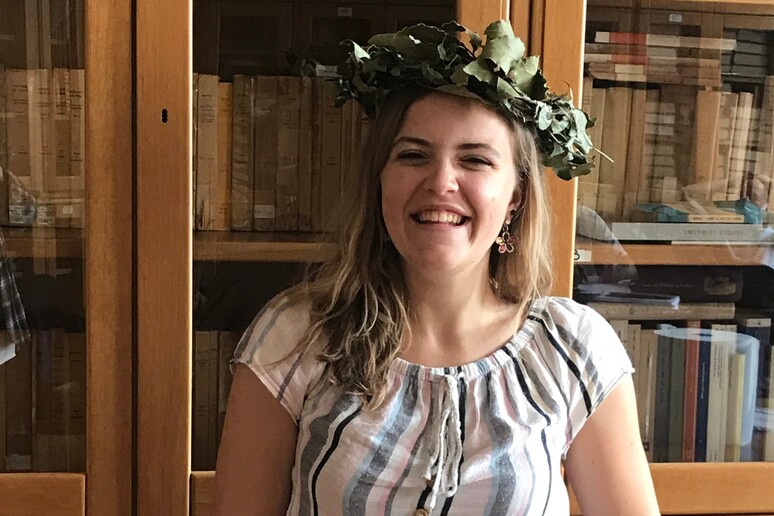An 18-year-old Italian girl has won
the gold medal at philosophy Olympics in Lisbon.
Giulia Pession, a student in the fifth year at the liceo
classico "XXVI Febbraio" in Aosta, beat 88 contestants from 42
countries.
Giovanni D'Antonio, a student in the fifth year of the liceo
scientifico "Torricelli" at Somma Vesuviana near Naples, got a
special mention for the second time.
The philosophy Olympics were back in person in the Portuguese
capital after a two year Zoom spell due to the COVID pandemic.
They were dedicated to the theme "identity and person", starting
from a work of the great Portuguese writer Fernando Pessoa.
"The essay was on four themes," said Pession, "a fragment by
Heroclitus, a gobbet of Kant taken from the Critique of Reason,
another by Hannah Arendt from the Banality of Evil, and a
quotation from Chinese philosopher Laozi."
She chose Heraclitus, and said: "I argued by explaining that in
my view there is no common logos and therefore everyone develops
their own ideas.
"It was very interesting, then, to see how, starting with this
thesis, every participant argued in a very different way and
took on various cultural premises.
"I didn't expect (to win), I was already very happy to be able
to take part in the final."
She added: "Philosophy is very useful to develop your own
thinking. You also have to think about the fact that science
would never have arisen without philosophical questions,
philosophy is not absolutely an oxymoron in comparison with
science, on the contrary, it continues to be a fundamental
talking point for science.
"I want to continue to study philosophy, in particular
philosophy and ethics. I'll do it in London".
Italy's last win was in 2002 when a Rome girl took the
prestigious prize.
ALL RIGHTS RESERVED © Copyright ANSA











